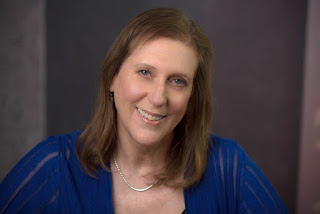Jill Lawrence is the author of the new book The Art of the Political Deal: How Congress Beat the Odds and Broke Through Gridlock. It looks at four recent case studies involving successful congressional deal-making. She is the commentary editor at USA Today, and she also has worked for National Journal and the Associated Press, among other news organizations. She is based in Washington, D.C.
Q: You describe the four case studies in your book as
“bright spots in a dark landscape” of political gridlock. What were some of the
ingredients that led to success in these cases, and are they able to be
replicated?
A: The conditions for success come from the American
Political Science Association: nonpartisan fact-finding, relationships among
people doing the negotiating, penalty defaults, and privacy, [which] is
necessary to make sure things don’t fall apart.
These are the things you need. You don’t have to have all of
them. Some crises and deadlines [can be] helpful, but that means you can’t do
it in private…
Q: If you take something like the current health care
debate, is it possible to see something develop along the lines you write
about, or is it impossible?
A: The same dynamic is in play; it’s just within the
Republican Party. They need the moderates in the Senate on their side…They will
need a compromise to get through the Senate, and the people in the House are going
in the opposite direction, so it’s not sure that it will pass.
[In other cases, such as] the infrastructure package or tax
reform, both parties want it but want to get to it in different ways. It’s
unclear it will work, but sometimes at the darkest hour, you have people who
are retiring who want it to be their legacy, or people with joblessness [in
their district] who want infrastructure.
Q: What impact will the new administration have on the
likelihood that this type of deal can happen going forward?
A: It’s hard to say. The administration is a mashup of types
of people with different goals. At the top, with the president, we’re not clear
what he wants—does he want a deal so he can say he did it? But that won’t
satisfy the Tea Party types or the populists.
It’s a complicated equation. Theoretically, this is a man
who bragged about getting to a deal. But the tactics he used in business are
not necessarily going to work in a congressional setting.
Q: The book covers a variety of political players from
Bernie Sanders to Paul Ryan. How important are the personalities of the
politicians involved in your case studies, compared with the structural issues
they faced?
A: They’re very colorful combinations [of negotiators]. The
least colorful was Paul Ryan and Patty Murray. They’re both workhorses.
They were chairmen of the budget committees. They had taken
time to get to know each other. They had fun with their football teams, [they
liked] fishing, they had tough childhoods, there were problems they had coped
with. That worked out on a personal level.
With Bernie Sanders and Jeff Miller, Miller was from the
Panhandle and was very conservative. They didn’t know each other before the
veterans deal.
At the same time with the farm bill, suddenly Debbie Stabenow
was head of the committee—she had a good personality for cajoling. Republican
staffers said she always had something to say when she saw them. She got off
good one-liners during the debate…
Q: As someone who’s covered politics for many years, how
does this era compare with others you’ve witnessed?
A: It’s a little mixed up now, compared to how the lines
were drawn in the Obama administration. There was the Tea Party, which has
somehow merged with the Republican establishment…
It’s extremely complicated now. That could bode well or ill,
depending on the president—how well he leads the party, how long he lasts in
office. There are so many uncertainties. In a way it’s less polarized with the
roiling of the Republican Party in so many directions.
Q: What motivated you to write the book?
A: For the first case study, Elaine Kamarck suggested it. We
both jumped on it because it’s constructive. There’s so much negativity. People
greeted it with relief—Congress was doing its job! Things were grim and people
were disgusted with politics, but this was a little bit of a green shoot.
I said, Let’s see what else we can find. It’s interesting to
see insights into [politicians’] psyches.
There are ways to get past [polarization] if people who are
doing the negotiations are professional enough…the key is that everybody walks
away able to claim a victory. You have to have tolerance for the other side for
that to happen. I came away with respect for the staff on the Hill.
Q: Do you think you’ll be working on another book?
A: I have no plans to right now; I have a more-than-full-time
job! There isn’t much written about congressional negotiations in the specific
way this is. It can be useful, on the state legislative level as well.
Q: Anything else we should know?
A: It’s very easy to badmouth Congress, but [these examples
give] hope to transcend this period. People right now, particularly Democrats,
are in a “hell, no” phase. It’s hard to blame them given what happened during
the Obama administration, but eventually governing will have to happen.
--Interview with Deborah Kalb


No comments:
Post a Comment